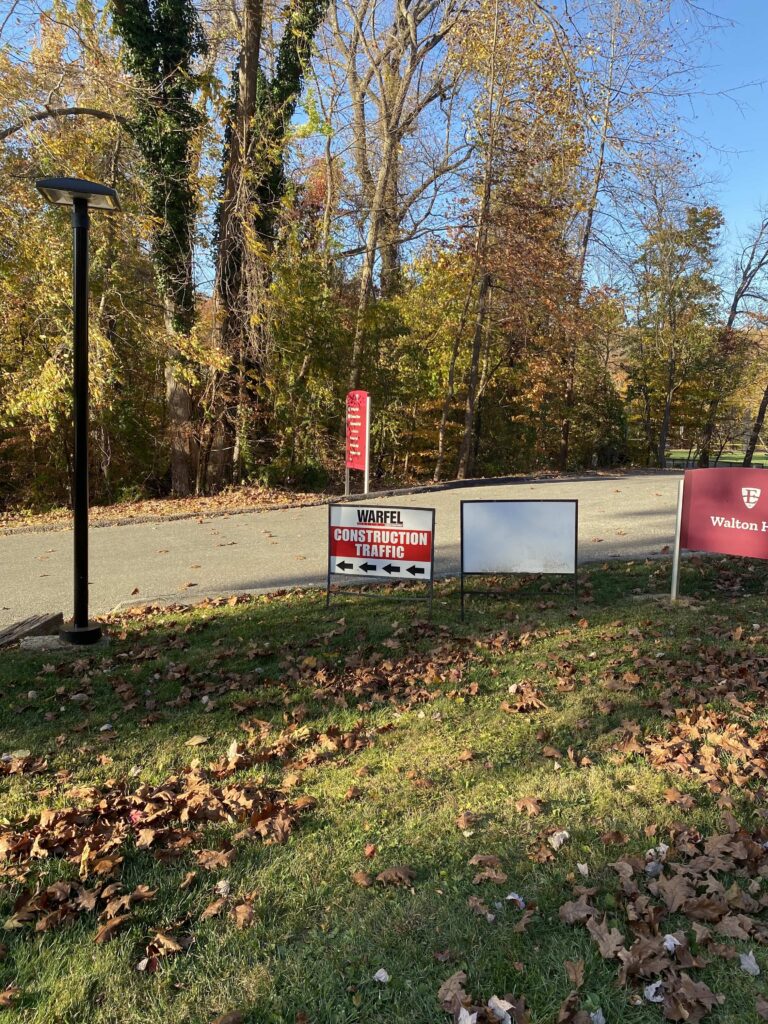Zoom! “On your left!” Whizz! “Watch out!” Are suddenly being heard all over Eastern giving students the signal to dive out of the way. Electric scooters have made an appearance as students buzz to and from class. Many are beginning to question why they are popping up everywhere.
Some are attributing it to the increased laziness of students. Others believe they are using it as a way to look cooler. “I realized that I could cut about four minutes from some walks,”…“added to that we had construction all around, making all our regular walks almost 2 times longer,” scooter user Indy Nelson, said. He explains that he cares about his academics and a scooter allows him to get to class on time.
The construction on campus has been causing major foot traffic delays which is another reason why many students are turning to scooters. At the beginning of the semester, instead of the usual path from Gough to McInnis that involved walking past the softball field, students had to walk all the way past Doane to get to McInnis.
This detour may not sound like a big problem, but when put into practice, it actually caused many issues. This included students needing to leave earlier to get to class or professors needing to take a prolonged route to get from some classrooms in McInnis to those in Gough. This was also an inconvenience for sports teams who now had to be dropped off all the way at Doane when there was a game.
To help aid this detour, Eastern built a temporary path next to the baseball field. Students are grateful for the path that has been placed there but wish it could have been built wider. This new path is skinnier than a sidewalk and forces students to rub elbows with those coming in the opposite direction.
One other big problem construction is causing is the problem of parking. Since the project on Fowler Hall is so large, the campus was forced to close off access to about 50 parking spots. When parking was already limited, losing these spots caused a much larger problem. This was very prevalent the first few weeks of school as even teachers and commuters found it hard to find a parking spot since residents ‘illegally’ took up those spaces.
Even after these temporary projects are finished, there are still many accessibility problems on campus that will remain unresolved. With the steep hills and winding paths, it can be hard to get around in general, but especially for those who are disabled.
For those with a short-term disability (like a broken leg), it is not too much of a hindrance to call public safety to bring you to your classes. They will even go as far as driving you to the front door of the building. For those with a chronic disability, having to call upon someone else to bring them to class for their entire four years at Eastern is a big hassle.
The detour that many students from Gough had to take earlier in this year, is the usual route for students who are unable to go up or down stairs. The five stairs that many of us may not even think about by the river are a huge deal for those with physical disabilities. When speaking with Lori Dziedziak, Director of the Office of Disability and Access, she explains that the biggest issue with accessibility on campus is the Dining Commons. Disabled students must travel all the way around the building, (up the hill next to Andrew’s Hall) to go into the back entrance of the DC.
Even with back routes like these, there are still places on campus that are inaccessible to this population. For example, the third floor of Walton is only accessible by stairs. This means that if one of these students needs to go to the offices up there, like the Cushing Center for Counseling and Psychological Services, they have to find a way to meet with them outside of their office.
Eastern is aware of these problems and is trying to make on-campus resources more accessible. This is one of the reasons why they moved the Academic Resource Center from the third floor of Walton to the third floor of Warner Library. “Eastern’s administration wants to make changes,” Dziedziak, said. The problem is that the administration needs funds and resources to be able to enact these transformations.
Dziedziak believes that students on campus have the power to be heard and create change. Often though, students do not know how to ask for the help they need. Dziedziak wants students to know that they can come to her with questions or concerns regarding any accessibility problems they have. She is located in Warner Library 226 (just before the stairs) and is an advocate for student voices. She also encourages students to speak out to their class representatives as they can also help improve facilities on campus.
Overall, there needs to be more publicity surrounding the issue of accessibility on campus. Your voice matters and you can choose to speak out and be heard. Sure, the construction is a nuisance, but some students are never able to have an easy route to class. The administration wants to change but it needs your help to tell them how.

